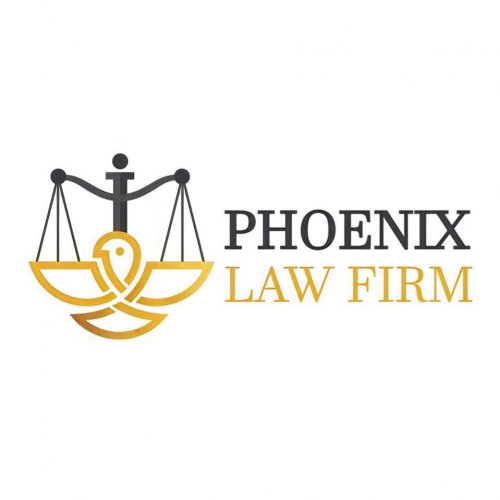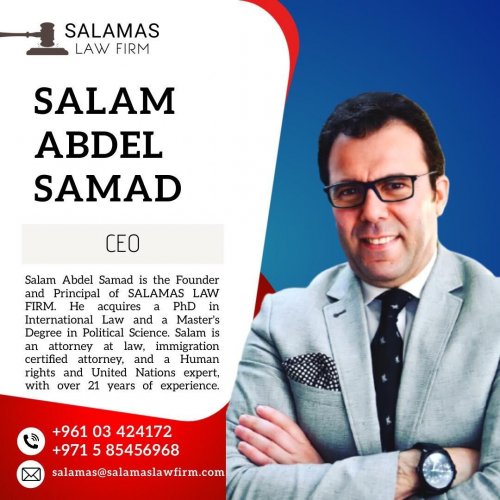Best Education Law Lawyers in Beirut
Share your needs with us, get contacted by law firms.
Free. Takes 2 min.
List of the best lawyers in Beirut, Lebanon
About Education Law in Beirut, Lebanon
Education Law in Beirut, Lebanon, encompasses the legal principles and regulations that govern the education system in the region. This includes everything from primary and secondary education to higher education institutions. The laws aim to ensure accessible, quality education for all children, uphold students' rights, and set standards for educational institutions. In Beirut, as part of the broader Lebanese legal framework, education is both a public and private affair, governed by a mix of national laws, decrees, and policies set forth by the Ministry of Education and Higher Education. The legal framework aims to accommodate the multicultural and multi-religious fabric of Lebanese society while striving for equity and inclusivity in educational opportunities.
Why You May Need a Lawyer
There are several reasons why individuals might seek legal advice in education law in Beirut, Lebanon. Common situations include disputes regarding school admissions, violations of students’ rights, disagreements over special education provisions, and issues concerning student discipline. Additionally, educational institutions may require legal assistance with regulatory compliance, employment law issues involving faculty or staff, and property or contractual disputes. Lawyers specializing in education law can offer valuable guidance in navigating these complex situations, safeguarding the legal rights of students and educators alike.
Local Laws Overview
Key aspects of local laws relevant to education in Beirut include: the right to education enshrined in the Lebanese Constitution, mandatory education laws that require all children to attend school until a certain age, and anti-discrimination laws ensuring equal access to education regardless of religion or ethnicity. Additionally, Lebanon has laws detailing curriculum standards, qualification requirements for educators, and regulations governing private and public educational institutions. Students' rights laws, which protect against unfair discipline and ensure a safe learning environment, are also significant.
Frequently Asked Questions
What are the basic educational rights for students in Lebanon?
Students in Lebanon have the fundamental right to education, protection from discrimination, and a safe learning environment. Lebanese law mandates free and compulsory education at the primary level.
How is the Lebanese education system structured?
The Lebanese education system is divided into primary, secondary, and higher education levels, with both public and private institutions playing significant roles.
What legal protections do students with disabilities have?
Students with disabilities in Lebanon are entitled to accommodations and modifications to provide them equal access to education, governed by national laws and international conventions Lebanon has signed onto.
How can parents challenge a school's decision in Lebanon?
Parents can address grievances through formal complaints to the school's administration, appeal to the Ministry of Education, or seek legal counsel to explore judicial remedies if necessary.
What procedures must schools follow in disciplinary actions?
Schools must adhere to due process, informing students of charges against them and offering a fair opportunity to respond before any disciplinary measures are taken.
What is the role of the Ministry of Education and Higher Education in Lebanon?
The Ministry is responsible for setting educational standards, approving curricula, ensuring compliance with national education laws, and overseeing both public and private educational institutions.
Are there laws regulating school fees for private institutions?
Yes, private schools must comply with national regulations concerning the disclosure of fees and any increases to ensure transparency and fairness toward parents and guardians.
How does Lebanon handle international education standards and agreements?
Lebanon integrates international standards into its education system, and participates in global educational agreements, recognizing international diplomas and cooperating in educational exchanges.
What are the child protection guidelines in schools?
Schools must uphold child protection measures, ensuring safety from abuse and exploitation while promoting students' physical and mental well-being.
How does education law protect against bullying in schools?
Anti-bullying policies are implemented in schools, demanding strict disciplinary measures against perpetrators and support for victims, in accordance with national guidelines.
Additional Resources
For further assistance, individuals may refer to the Ministry of Education and Higher Education, Lebanese National Commission for UNESCO, the National Council for Educational Research, and child rights organizations such as the Lebanese Association for Educational Studies. These bodies can provide detailed information and guidance regarding education law issues.
Next Steps
If you need legal assistance in education law, it is advisable to consult an attorney specializing in this field. Begin by gathering all relevant documentation, such as communications with educational institutions or official reports. Schedule a consultation to outline your circumstances and get professional legal advice. Seeking timely legal counsel can ensure your rights or those of your child are adequately protected and upheld within the Lebanese education legal system.
Lawzana helps you find the best lawyers and law firms in Beirut through a curated and pre-screened list of qualified legal professionals. Our platform offers rankings and detailed profiles of attorneys and law firms, allowing you to compare based on practice areas, including Education Law, experience, and client feedback.
Each profile includes a description of the firm's areas of practice, client reviews, team members and partners, year of establishment, spoken languages, office locations, contact information, social media presence, and any published articles or resources. Most firms on our platform speak English and are experienced in both local and international legal matters.
Get a quote from top-rated law firms in Beirut, Lebanon — quickly, securely, and without unnecessary hassle.
Disclaimer:
The information provided on this page is for general informational purposes only and does not constitute legal advice. While we strive to ensure the accuracy and relevance of the content, legal information may change over time, and interpretations of the law can vary. You should always consult with a qualified legal professional for advice specific to your situation.
We disclaim all liability for actions taken or not taken based on the content of this page. If you believe any information is incorrect or outdated, please contact us, and we will review and update it where appropriate.










